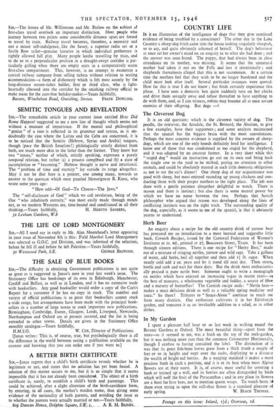SEMITIC TONGUES AND REVELATION
Sia,—The remarkable article in your current issue entitled How Did Rome Happen.? suggested to me a new line of thought which seems not without a measure of importance. If the mental and philosophical " genius " of a race is reflected in its grammar and syntax, as is un- doubtedly the case where the Latins and the Celts are concerned, it is to be noticed that the Semitic (Hebrew, Syriac and Arabic) tongues, though (pace the British Israelites!) philologically utterly distinct from both, are much more akin to the latter than the former. They know but two " tenses," neither of which, strictly speaking, expresses a purely temporal relation, but rather (a) a process completed and (b) a state of incompletion or " becoming." Hebrew thought is naive and intuitional. The " problem of time and eternity " lay outside its range altogether. May it not be that here is a pointer, one among many, towards an answer to the question which once puzzled Monseigneur R. Knox, who wrote some years ago:
" How odd—Of God—To Choose—The Jews."
The " self-disclosure of God " which we call revelation, being of the One " who inhabiteth eternity," was most easily made through minds not, as we modern Westerns are, time-bound and conditioned in all their
32 Lexham Gardens, W.8


































 Previous page
Previous page